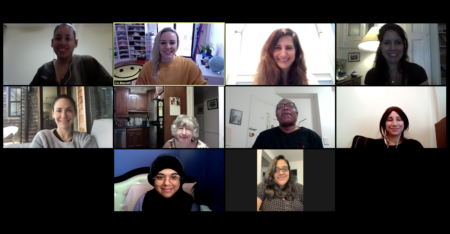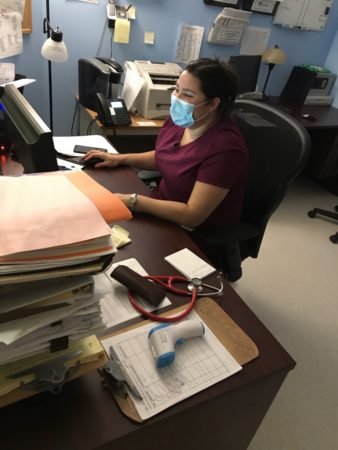Medical and Mental Health
 Little Flower’s Mental Health and Medical Department utilize a trauma-informed, multi-systemic approach to provide children and families with quality medical and mental health services to support their physical, emotional, and general well-being.
Little Flower’s Mental Health and Medical Department utilize a trauma-informed, multi-systemic approach to provide children and families with quality medical and mental health services to support their physical, emotional, and general well-being.
Aligning with the agency’s focus to strive toward embodying the Sanctuary commitments, we aim to heal the devastating effects of trauma, poverty, racism, substance abuse, violence, and lack of opportunity, on children and families, through the use of proven, effective mental health, medical, and support services.
Our team is dedicated to improving the lives of children and families. Therefore, we remain current in the field by attending trainings and presenting at conferences, collaborating with other providers and child welfare agencies, and implementing Evidence-Based Treatment models.
Medical Services
Children live healthier lives when medical care is accessible and convenient. Little Flower provides individualized medical services designed to meet each child’s and family’s unique needs. These plans are developed through the continuous and coordinated care provided by the Little Flower medical staff in collaboration with pediatricians as well as specialists when indicated.
On admission into the Foster Care program, children are assigned a Nurse Case Manager and a Primary Care Physician (PCP) in the area they reside to serve as that child’s Medical Home. The nurses oversee well-child clinics, assist the pediatrician with routine physicals, and coordinate referrals to specialists when recommended.
For residents at the Residential Treatment Center, the Medical Department sees youth within 24 hours of admission for an Initial Health Screen. We currently provide 16-hour nursing coverage daily, medication administration, and routine medical treatment. Support staff are available to assist with the arrangements of referrals to specialists when recommended. At this time, medical clinics are held approximately weekly for well visits and non-urgent sick visits. We are pleased to work with a local lab to provide on-site phlebotomy for the youth on campus.
Our adolescent population receives confidential reproductive health counseling and assistance with referrals as needed. Additionally, our team coordinates pharmacy and laboratory services to children and families in care
DENTAL
Good dental health complements good medical health. Primary dental services coordinated by our Medical department include:
- Oral examination
- Prophylaxis (dental cleaning)
- Carries risk assessment
- Fluoride treatment
- Sealants
Mental Health Services
Little Flower provides mental health support for youth and their families. These services are provided by licensed psychiatrists, psychologists, and social workers.
Youth are screened within 30 days of admission, annually, and referred as needed for psychiatric and psychological evaluations, therapy, and support services including, but not limited to, completing Complex Trauma Assessments for Health Home eligibility. Children are assessed for mental health needs through screenings, psychological and psychiatric evaluations. When children exhibit the need for mental health intervention, they are referred for therapeutic services either in the community or through our staff therapists or service providers. These services may include:
- Individual therapy
- Family therapy
- Cognitive Behavior Therapy Plus (CBT+)
- Trauma-Focused Cognitive Behavioral Therapy (TF-CBT)
- Cognitive Behavioral Therapy for Insomnia (CBT-I)
- Eye Movement Desensitization and Processing (EMDR)
- Life Skills Coordination
- Other Licensed Practitioner (OLP)
- Community Psychiatric Supports and Treatment Services (CPST)
- Psychosocial Rehabilitation Services (PSR)
- Home and Community-Based Services (HCBS)
- Health Homes
Specialty services include the LGBTQ-A Teen group and other group therapy.
If psychotropic medication is indicated, the children are seen by Little Flower’s consulting psychiatrists or are referred to a community clinic.
Parents and caregivers are encouraged to be a part of the therapeutic process.


Connect with Little Flower